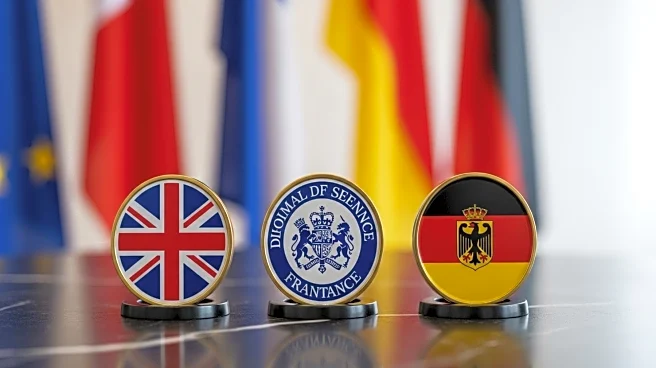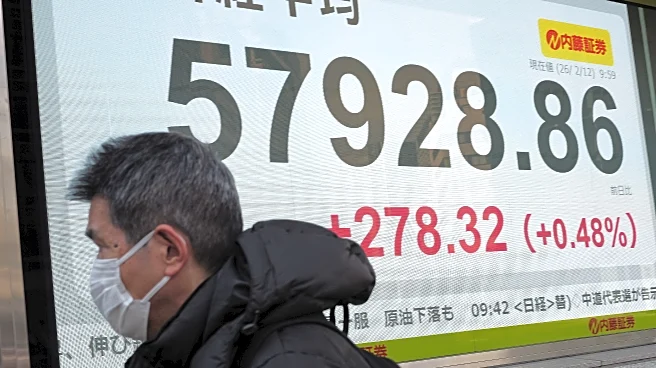What's Happening?
The United Kingdom, France, and Germany have reinstated United Nations sanctions on Iran due to its continued nuclear activities and lack of cooperation. This decision comes after Iran increased its nuclear activities following the U.S. withdrawal from the Joint Comprehensive Plan of Action (JCPOA) in 2016. The sanctions, which were lifted a decade ago, have been reimposed as a last resort after failed negotiations at the UN General Assembly. Iran's President Masoud Pezeshkian has condemned the sanctions as unfair and illegal, asserting that Iran has no intention of developing nuclear weapons. The sanctions aim to curb Iran's nuclear program by reinstating economic and military restrictions.
Why It's Important?
The reimposition of sanctions on Iran is significant as it highlights the ongoing international tensions surrounding Iran's nuclear program. The sanctions are expected to further strain Iran's economy, which is already under pressure from existing U.S. sanctions. This move could potentially escalate tensions in the Middle East, affecting global oil markets and international relations. The decision by the UK, France, and Germany underscores the challenges in diplomatic efforts to manage nuclear proliferation and maintain regional stability. The sanctions also reflect the complexities of international agreements and the difficulties in achieving consensus among global powers.
What's Next?
The reimposition of sanctions is likely to lead to further diplomatic efforts to bring Iran back to the negotiating table. However, Iran's response to the sanctions and its future actions regarding its nuclear program remain uncertain. The international community will be closely monitoring Iran's compliance with the Non-Proliferation Treaty and its cooperation with the International Atomic Energy Agency. The potential for increased tensions between Iran and Western countries could lead to further geopolitical instability, impacting global security and economic interests.












